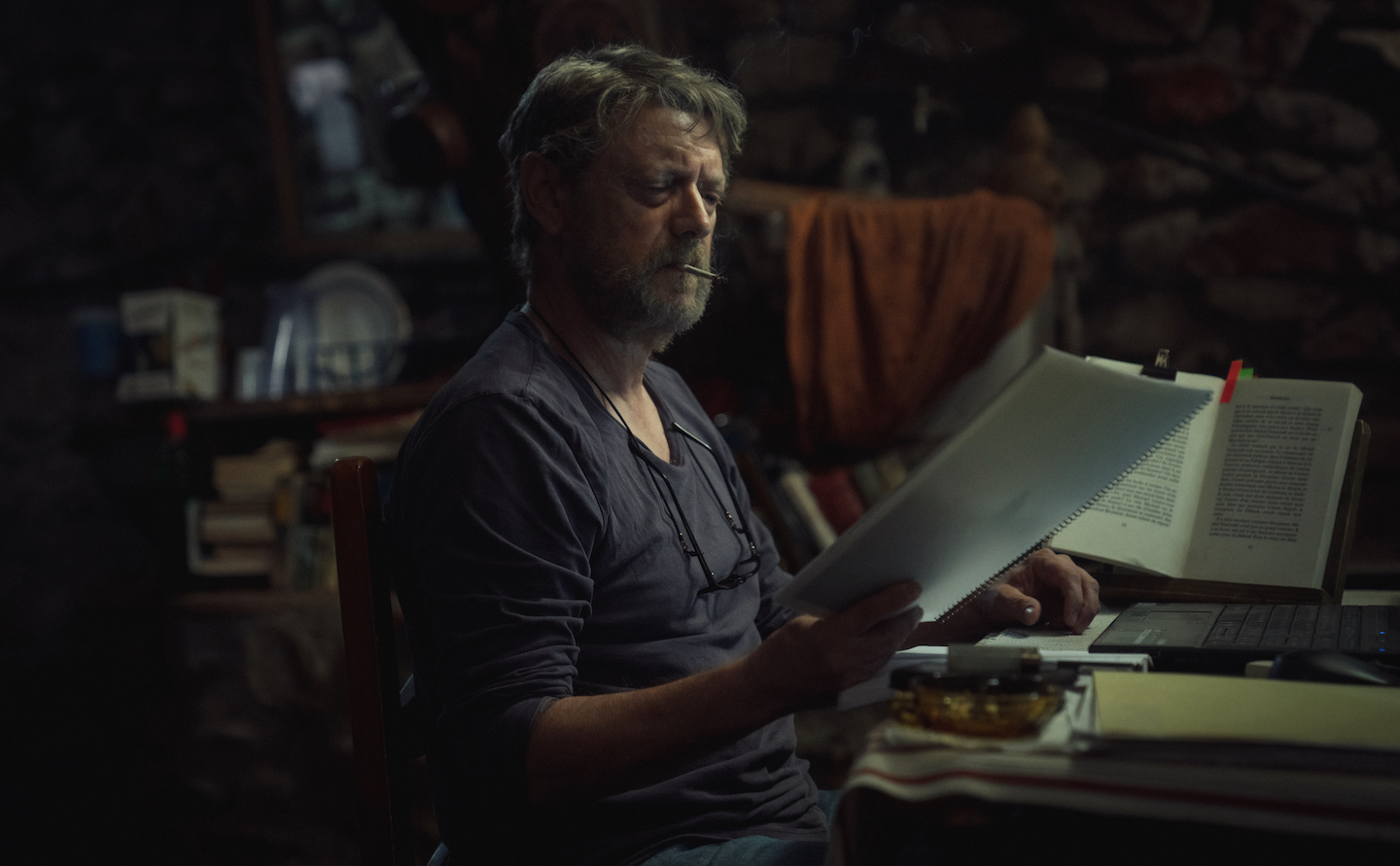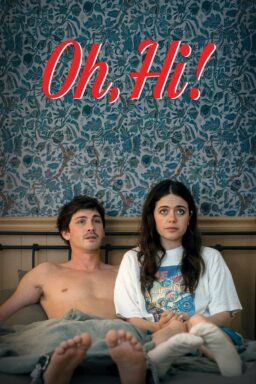“Close Your Eyes,” the first feature from the Spanish director Víctor Erice (“The Spirit of the Beehive”) in more than 30 years, opens in Paris in 1947. But it’s a fakeout: The sequence turns out to be a movie within the movie. It’s also an important piece of evidence in the central mystery of “Close Your Eyes.” We soon learn that the lead actor from the scene, Julio Arenas (Jose Coronado), disappeared and that the film he was starring in, “The Farewell Gaze,” was never completed. Did Arenas run off? Was there an accident or a suicide? His whereabouts are unknown.
The bulk of the action in “Close Your Eyes” takes place in 2012, 22 years after the vanishing, when participating in a TV episode on Arenas sends the scrapped film’s director, Miguel Garay (Manolo Solo), down a rabbit hole to seek closure. The two film cans that exist of “The Farewell Gaze” are held by Miguel’s editor, Max (Mario Pardo), who reminds him of just how much film history is in danger of being lost.
Fans of “Beehive” may be surprised at how ponderous “Close Your Eyes” is and how dark and muted it looks. The film runs two hours and 49 minutes, and much of it consists of long, winding conversations with people who knew Arenas, like his daughter, Ana (Ana Torrent), and Lola (Soledad Villamil), who had relationships with both men. (Miguel and Julio were close and had served as naval officers together.) It’s not all so arid—Miguel gets to sing “My Rifle, My Pony, and Me” from “Rio Bravo.” But the slow burn, if perhaps not entirely warranted, leads to a finale that makes a strikingly serious case for the necessity of cinema. “Close Your Eyes” proposes that film is not just a means of preserving memory but also a way of sharpening it.
“Close Your Eyes” has been the subject of controversy at Cannes. Erice chose not to attend the festival and published an open letter in El País blaming the festival for stonewalling him during the selection process. (A hat-tip to my friend and Erice superfan Bilge Ebiri for alerting me to this.) Erice said that the lack of a timely answer on whether “Close Your Eyes” would be included prevented him from choosing an alternative platform for it. “Close Your Eyes” ultimately landed in Cannes’ oddball “Cannes premiere” section, a sidebar that started in 2021 rather than in competition. According to Deadline, the festival denied it had gone silent with the filmmaker’s team.
Erice said he had been offered the opportunity to open Directors’ Fortnight, which is sort of but not precisely Slamdance to Cannes’ Sundance—a different festival that happens simultaneously. Yesterday, Quentin Tarantino made his first-ever Fortnight appearance. (“Reservoir Dogs,” “Pulp Fiction,” “Kill Bill Vol. 2,” “Death Proof,” “Inglourious Basterds,” and “Once Upon a Time in Hollywood” all showed in the festival’s official selection.)
The Fortnight began its onstage interview with Tarantino with a clip from Todd McCarthy’s documentary “Pierre Rissient: Man of Cinema” (2007), in which Tarantino recalled desperately wanting to show “Reservoir Dogs” in the cool-sounding Directors’ Fortnight, even though he had no idea what that meant.
The interview, by the Fortnight’s artistic director, Julien Rejl, followed a screening of a surprise film that turned out to be John Flynn’s “Rolling Thunder” (1977) on a suitably worn 35-millimeter print. The talk largely focused on Tarantino’s new book, Cinema Speculation. The director didn’t break much news, but it was fun to see his rapid-fire, profanity-laden insights instantly translated into French by a heroic interpreter.
Tarantino credited “Rolling Thunder” with being the movie that got him to think about himself seriously as a sort of film critic, even though he wasn’t writing his thoughts down. He discussed the differences between the finished film and the original screenplay that Paul Schrader had written. “He doesn’t recognize that movie any more than I recognize Oliver Stone’s version of ‘Natural Born Killers,’ for many of the same reasons,” Tarantino said, to applause, adding that, even though he loves “Rolling Thunder,” he gets why Schrader doesn’t. He said that hardly any of Schrader’s dialogue survived.
When Rejl asked about Tarantino’s ostensible need to fix reality with revenge movies, Tarantino said it wasn’t quite a need. Killing Hitler in “Inglourious Basterds” wasn’t an idea he had from the beginning of the writing process, he said, but he made “Once Upon a Time … in Hollywood” expressly “to save Sharon.”
It was also interesting to hear that, after having made extremely critical remarks about John Ford at the time of “Django Unchained,” Tarantino has somewhat come around on “The Searchers.”
“I had never understood the high pedestal that John Milius and Spielberg and Scorsese and Schrader have always put that movie up to,” he said. But when writing Cinema Speculation, Tarantino figured he should watch the film again. “And lo and behold, this time I liked it,” he said. “This time, I kinda got it. I’m still not as into it as these guys are, all right? But I see a little bit more where Scorsese’s talking about, especially his breakdown of Ethan Edwards.”
And why has Tarantino chosen to have a critic as the main character of his next feature? “That’s a long story,” he said. “I can’t tell you guys until you see the movie. I’m feeling pretty good with this microphone in my hand—I’m tempted to do some of the character’s monologues right here, right now—but I’m not going to. But I’m tempted.”












